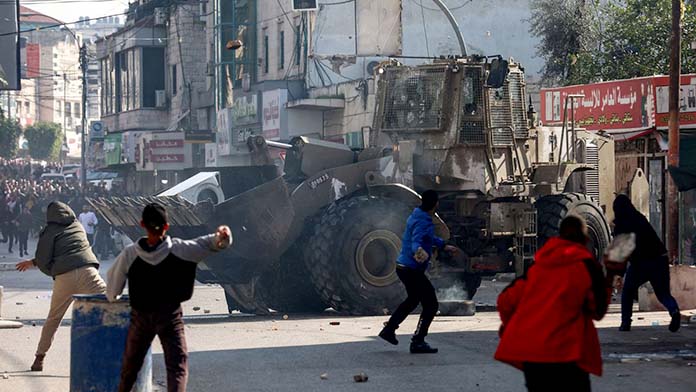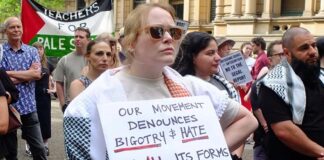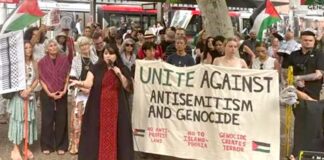Israel has stepped up its murderous rampages in the West Bank as the Netanyahu government encourages greater settler violence against Palestinians.
At the same time Netanyahu has been forced to postpone plans to neuter the court system, in the face of mass protests by Israelis.
This year Israel has killed at least 83 Palestinians in military raids on towns in the West Bank including Jenin, Nablus and Jaba.
One assault in Jenin in January saw nine people killed, including a 61-year-old woman and several children. Another attack in Nablus in February involving rocket attacks in a heavily populated area killed 11 people, including a 16-year-old boy and two elderly men. Hundreds more have been wounded by indiscriminate Israeli gunfire.
Israel stepped up its military raids following the “Unity Intifada” in May 2021. Last year was the deadliest in the West Bank in decades, with 173 Palestinians killed in near daily raids.
Israel is targeting a new generation of armed resistance groups that have formed out of frustration with the failure of existing Palestinian political factions like Fatah and Hamas.
Benjamin Netanyahu’s new hardline Israeli government has moved to further expand West Bank settlements, stealing more and more Palestinian land.
In February the government gave official recognition to nine Jewish settler outposts built illegally and announced plans for the construction of more than 7000 new housing units in other settlements.
There are now more than half a million Jewish settlers living in West Bank settlements that are illegal under international law, and another 250,000 in East Jerusalem. Netanyahu wants to annex the entire West Bank to seize control of more land.
The government has given its backing to settler terror against Palestinians.
Hundreds of settlers went on a violent rampage in February after a lone Palestinian gunmen shot two settlers dead near Huwara. They torched 30 homes and more than 100 cars in the village, chopping down olive trees and killing livestock while shouting “death to the Arabs”.
One Palestinian was killed and nearly 400 injured. Rather than protect them, the villagers accused Israeli soldiers of firing tear gas at residents who were trying to defend themselves.
“We have never seen anything like this,” Sakir, a 22-year-old Palestinian, told a reporter. “The settlers have nothing to be afraid of anymore; they know they can do whatever they like.”
This is the everyday reality of Israeli settler colonialism and its continuing efforts to dispossess the Palestinians from their land and homes.
Internal divisions
Netanyahu returned as Prime Minister in late December after 18 months out of office. His government is the most right-wing ever, with his own Likud party in coalition with the far-right Religious Zionism alliance that includes figures such as Itamar Ben-Gvir, the new minister in charge of police.
Ben-Gvir is an extreme racist and Jewish supremacist who supports the violent expulsion of Palestinians from the West Bank.
His political mentor, Meir Kahane, was so vicious that he was banned from running in Israeli elections and his party was declared a terrorist organisation in the US.
The Finance Minister, Bezalel Smotrich, has described himself as a “proud homophobe” whose response to the settler rampage in Huwara was to say: “I think the village of Huwara needs to be wiped out.”
The government is so right-wing that opposition politicians, their supporters and even some members of the military fear Israeli democracy is at threat.
Moves to allow the government to over-ride court decisions—which might make it easier for Netanyahu to beat corruption charges—have led to huge demonstrations.
But protest leaders have made sure to exclude Palestinians, turning the rallies into a sea of Israeli flags. A leader of one of the Palestinian Arab parties inside Israel was physically attacked after he spoke at one.
The divisions in Israeli society are a product of the racism and violence necessary to maintain Israel’s oppression of the Palestinians.
While the protesters say they support democracy they are also firm supporters of Zionism, the founding ideology of Israel as a colonial settler state.
The US government has also criticised Netanyahu’s judicial reforms and renewed settlement building. But like the protesters their concern is about how to ensure the continuation of Israeli’s domination of the Palestinians and its role as a watchdog for US imperialism in the region.
The hope for the liberation of Palestine does not lie inside Israel but among the wider Arab population of the region—and a mass movement that challenges imperialism across the Middle East.
By James Supple






